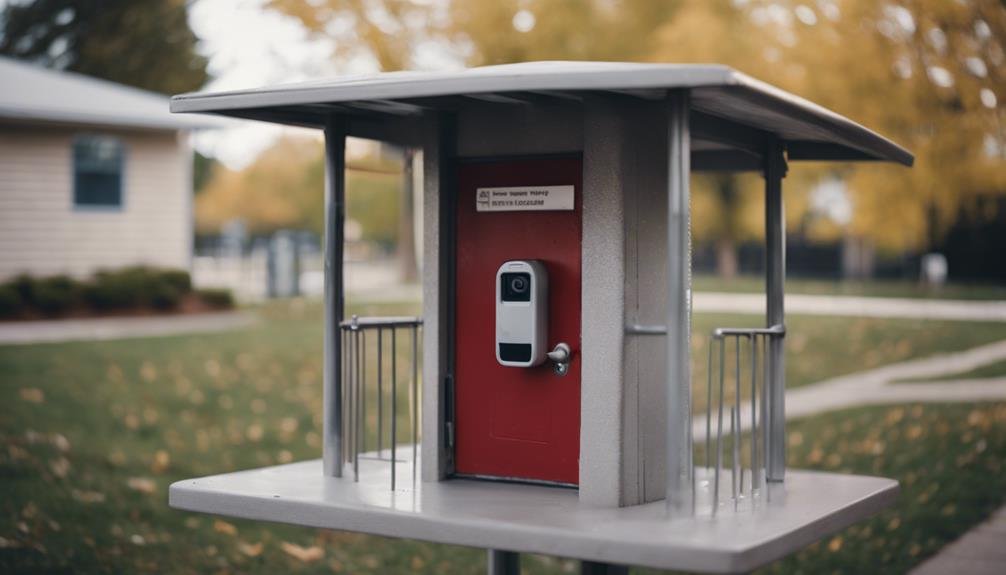- When facing domestic abuse, seeking shelter From Domestic Abuse is essential for your immediate safety and well-being. Domestic violence shelters provide a safe haven where you can access support services, counseling, and resources to help you heal and plan your next steps. By prioritizing safety and confidentiality, shelters offer a secure environment where you can receive essential support, including safe housing, counseling, and legal assistance. These shelters emphasize safety, empowerment, and independence, offering tailored resources to help survivors regain control and rebuild their lives. Remember, your well-being is important, and seeking shelter is an important step towards a brighter future.
Key Takeaways
- Immediate safety and protection are top priorities.
- Access to support services, counseling, and resources.
- Domestic violence shelters offer safe havens.
- Confidentiality and security are ensured.
- Essential for healing, planning, and rebuilding lives.
Importance of Seeking Shelter From Domestic Abuse
Seeking shelter from domestic abuse is an essential step towards ensuring your immediate safety and protection from further harm. Domestic violence shelters offer a safe haven where you can access vital support services, counseling, and resources to aid in rebuilding your life.
These shelters prioritize your safety and confidentiality, providing a secure environment for you to heal and plan for long-term safety and independence.
Benefits of Emergency Shelter From Domestic Abuse
When escaping domestic abuse, seeking Shelter From Domestic Abuse can provide crucial support and resources to help you rebuild your life. Emergency shelters offer safe housing, support services, counseling, and legal assistance to assist you in maneuvering through this challenging time. These shelters provide short-term stays, ensuring immediate protection and access to essential resources while emphasizing safety, empowerment, and independence for survivors of domestic violence.
Moreover, many emergency shelters have on-site security measures in place to guarantee your safety and well-being. Additionally, some shelters offer childcare services, allowing you to focus on your recovery knowing your children are being cared for.
Resources Available in Shelters
Emergency shelters provide a range of resources to support individuals fleeing domestic abuse, including safety planning, counseling, legal assistance, and basic needs provisions.
When seeking shelter, you can find temporary refuge in a safe environment where your well-being is a top priority. These shelters offer essential support services tailored to help survivors like you regain control and rebuild their lives.
From safety planning to ensure your immediate protection to counseling services that offer emotional support and guidance, shelters are equipped to assist you every step of the way. Legal assistance is also available to help navigate the complexities of legal processes related to domestic abuse.
Additionally, shelters ensure basic needs provisions are met, such as food, clothing, and hygiene products, to offer comfort during challenging times. Confidentiality is strictly maintained in shelters to safeguard your privacy and security as you take the courageous step towards a life free from abuse.
Support Services Offered
Shelters provide a range of essential support services to individuals fleeing domestic abuse, including counseling, legal assistance, and safety planning. These services are vital in helping survivors navigate the challenges they face.
In addition to these core services, shelters also offer case management to make sure survivors have access to tailored resources and referrals that meet their specific needs. Onsite pediatric forensic nurse exams are available to address the unique requirements of survivors with children.
The extensive coverage provided by shelters across 98 different cities in Texas ensures that support is accessible statewide. Moreover, the ability of 87% of organizations in Texas to communicate in Spanish enhances language accessibility for a significant portion of survivors.
Safety Measures in Shelters

To guarantee the safety and well-being of survivors, shelters implement various security measures and protocols. Shelters are equipped with security cameras, locked entrances, and confidential locations to protect individuals from domestic violence.
Trained staff members offer support services, including counseling, legal assistance, and access to medical care, addressing both physical and emotional needs. Security personnel and panic buttons are in place, along with safety protocols, to establish a secure environment.
Confidentiality policies and strict guidelines are enforced to safeguard survivors and maintain privacy. Residents can seek refuge in shelters knowing that their safety is a top priority, with measures in place to prevent further harm.
Frequently Asked Questions
Can I Bring My Pet With Me to the Shelter?
Yes, you can bring your pet to the shelter. Pet accommodations are available for emotional support. Safety concerns are addressed, and veterinary care is provided. Pet therapy, pet-friendly policies, community resources, and support networks aid in the healing process.
Are There Age Restrictions for Children in Shelters?
When staying at shelters, there are no age restrictions for children. They offer various services like childcare, education support, counseling, safety planning, play therapy, teen programs, support groups, recreational activities, medical care, and trauma-informed care to help families in need.
What Type of Legal Assistance Is Provided in Shelters?
In shelters, legal advocacy, counseling services, safety planning, court representation, support groups, housing assistance, financial resources, child care, job training, and medical referrals are provided to help you navigate and recover from challenging situations.
How Long Can I Stay at an Emergency Shelter?
You can stay at an emergency shelter for a limited time, typically ranging from a few weeks to a couple of months. During this period, you’ll have access to support services, safety measures, counseling options, and community resources. These resources aim to assist you in your emotional healing, change planning, and accessing financial assistance. Peer connections are encouraged to foster a supportive environment, and self-care strategies are provided to help you rebuild and thrive.
Are Shelters Equipped to Accommodate Individuals With Disabilities?
Shelters work towards providing accessibility accommodations for individuals with disabilities, offering support services, mental health resources, safety protocols, transportation assistance, financial aid, family counseling, job training, educational programs, and community outreach to guarantee holistic care.
Conclusion
You deserve a safe haven from the storm of domestic abuse. Seek shelter to find refuge, like a lighthouse guiding you to safety in the midst of darkness.
With support services, resources, and safety measures available, you can rebuild and reclaim your life. Remember, you aren’t alone in this journey towards healing and empowerment.
Take that first step towards shelter, where hope shines bright and the path to a brighter tomorrow begins.





